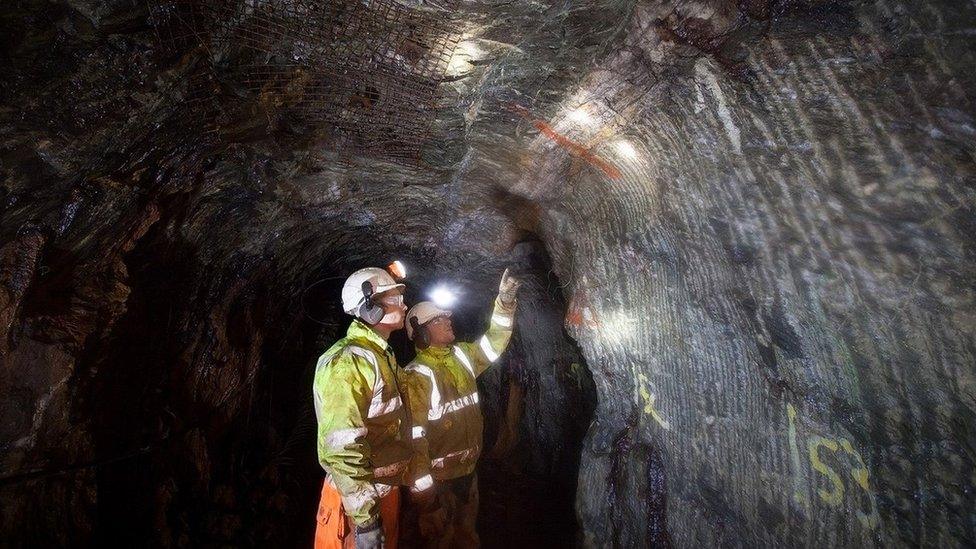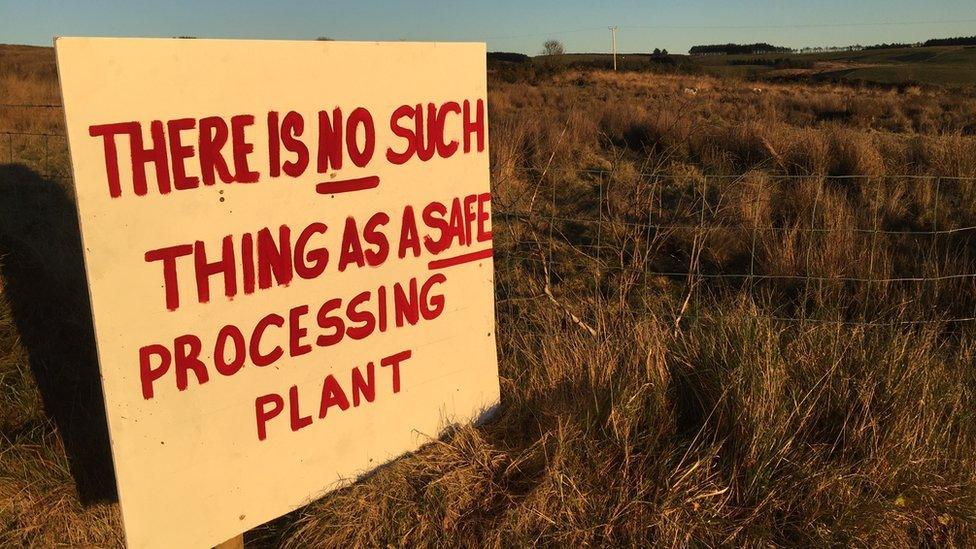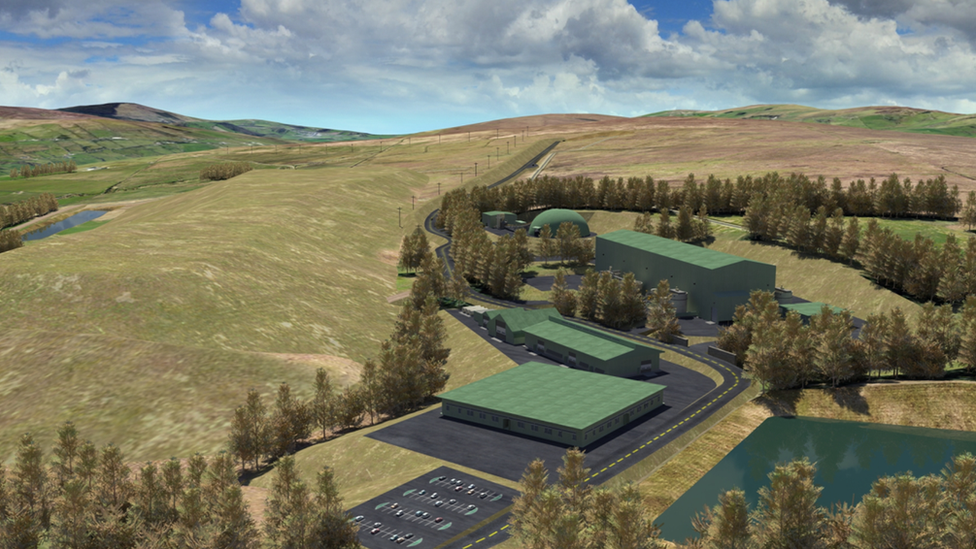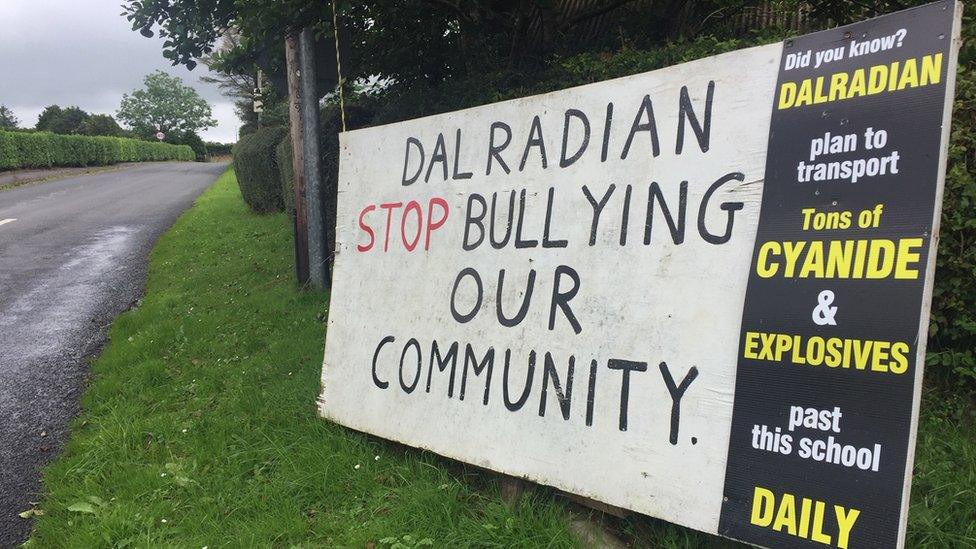Dalradian: Tyrone gold mine company drop cyanide plan
- Published

Dalradian Gold claims there are £3bn worth of deposits in the Sperrin Mountains
The owners of a proposed controversial gold mine in County Tyrone have dropped plans for the use of cyanide.
Dalradian said on Tuesday that it no longer planned to use it as part of the extraction process at the site in the Sperrin Mountains.
But those against the mine said it would not affect their continued opposition to the project.
They said they would not stop until the entire plan was shelved.
In a statement issued on its website, external, Dalradian said it had filed new environmental information with the Department for Infrastructure as part of the planning application.

People living near the proposed gold mine feared human error or equipment failure could lead to a cyanide spill
It said no cyanide would be used as part of the gold extraction process.
Instead the ore would be partially refined and sent overseas for the final steps in the extraction process.
Company President Patrick FN Anderson said they had listened to the extensive public feedback on the plan.
But campaign groups have restated their opposition to the proposals.

Dalradian say they are designing a safe project, meeting and exceeding all regulations
One used social media to say they would continue to protect the environment: "No gold, no need to process it."
Opposition to the mine has centred on plans for the use of cyanide, on a proposal to build a huge mound of mine spoil into the landscape of an Area of Outstanding Natural Beauty and because of the potential impact on air quality and protected rivers nearby.
In February, the Public Health Agency wrote to planners to express concerns about the use of cyanide at the site.
Gerry Waldron, the assistant director of the PHA, said the solid form of cyanide proposed for use risked the release of hydrogen cyanide gas, a highly toxic chemical that can be rapidly fatal.
Mr Waldron noted that while the company intended to comply with an industry code, it was voluntary and it was not clear what sanctions might be applied in the case of any deviation, or how the code would be regulated.

Ptotest signs have appeared at the County Tyrone site of the proposed goldmine
The company said the mine will bring economic benefits and is one of the largest gold resources in Europe.
It said the mountains could contain £3bn in gold and provide a £750m boost to the Northern Ireland economy.
- Published23 January 2019

- Published5 December 2018
